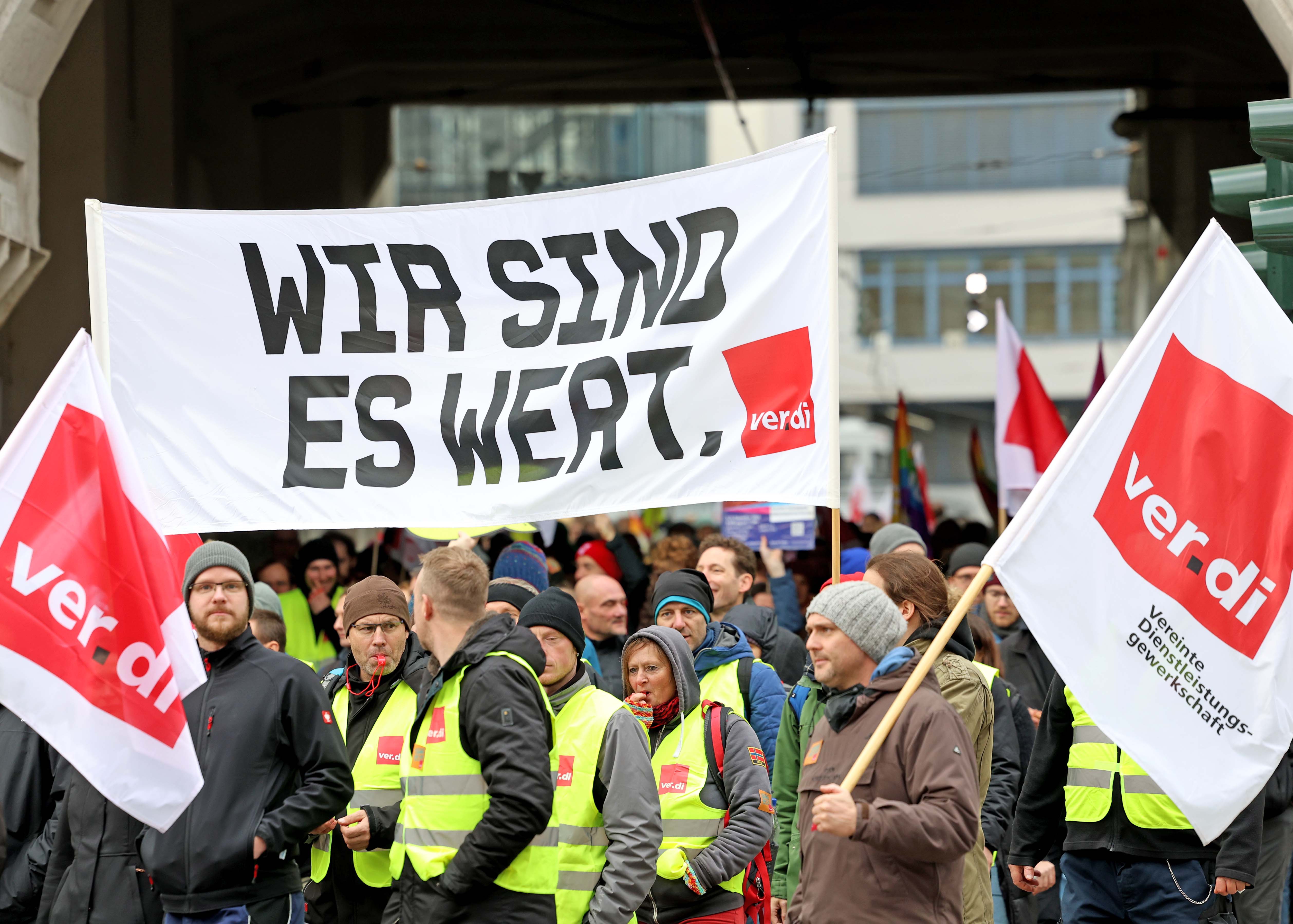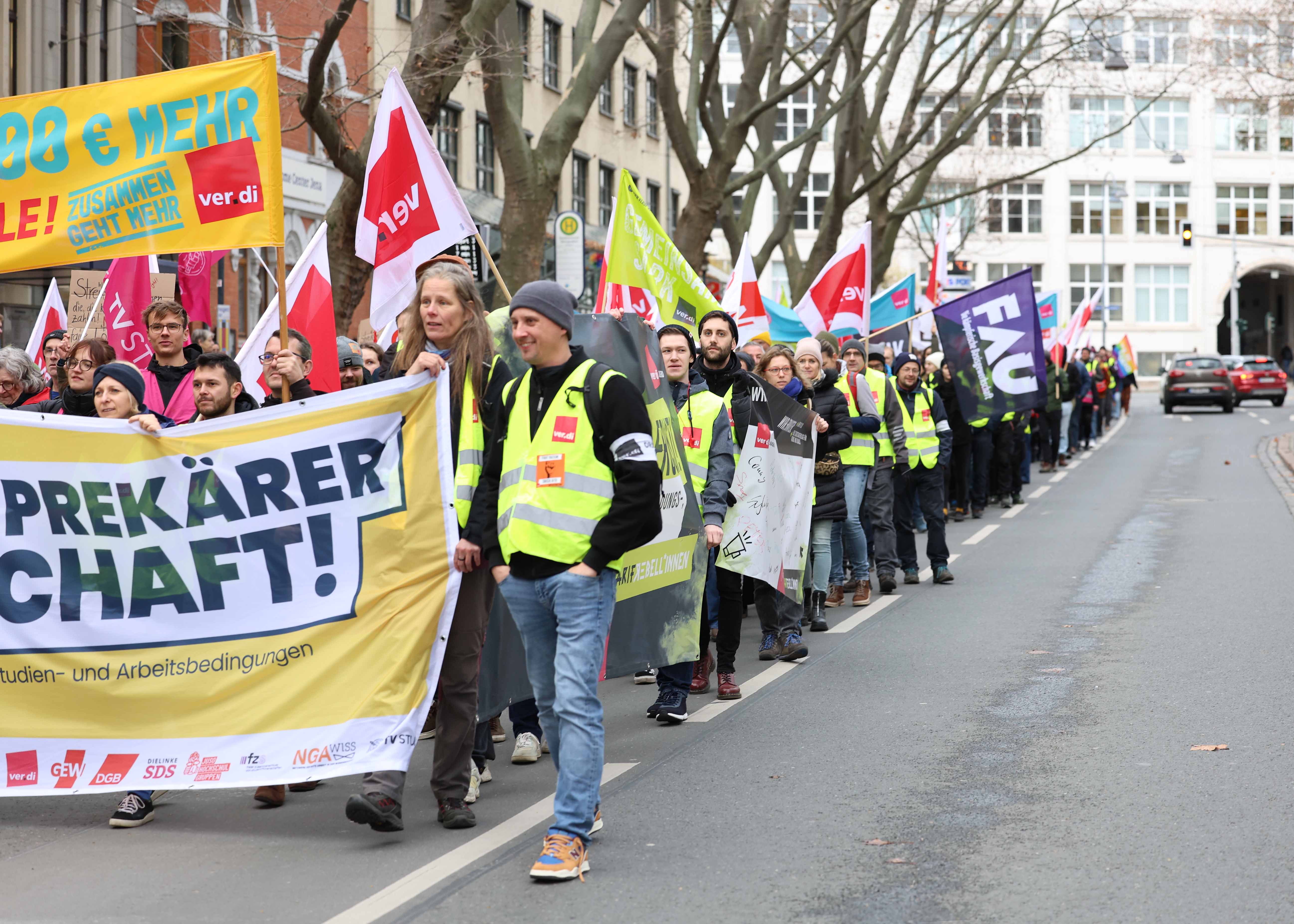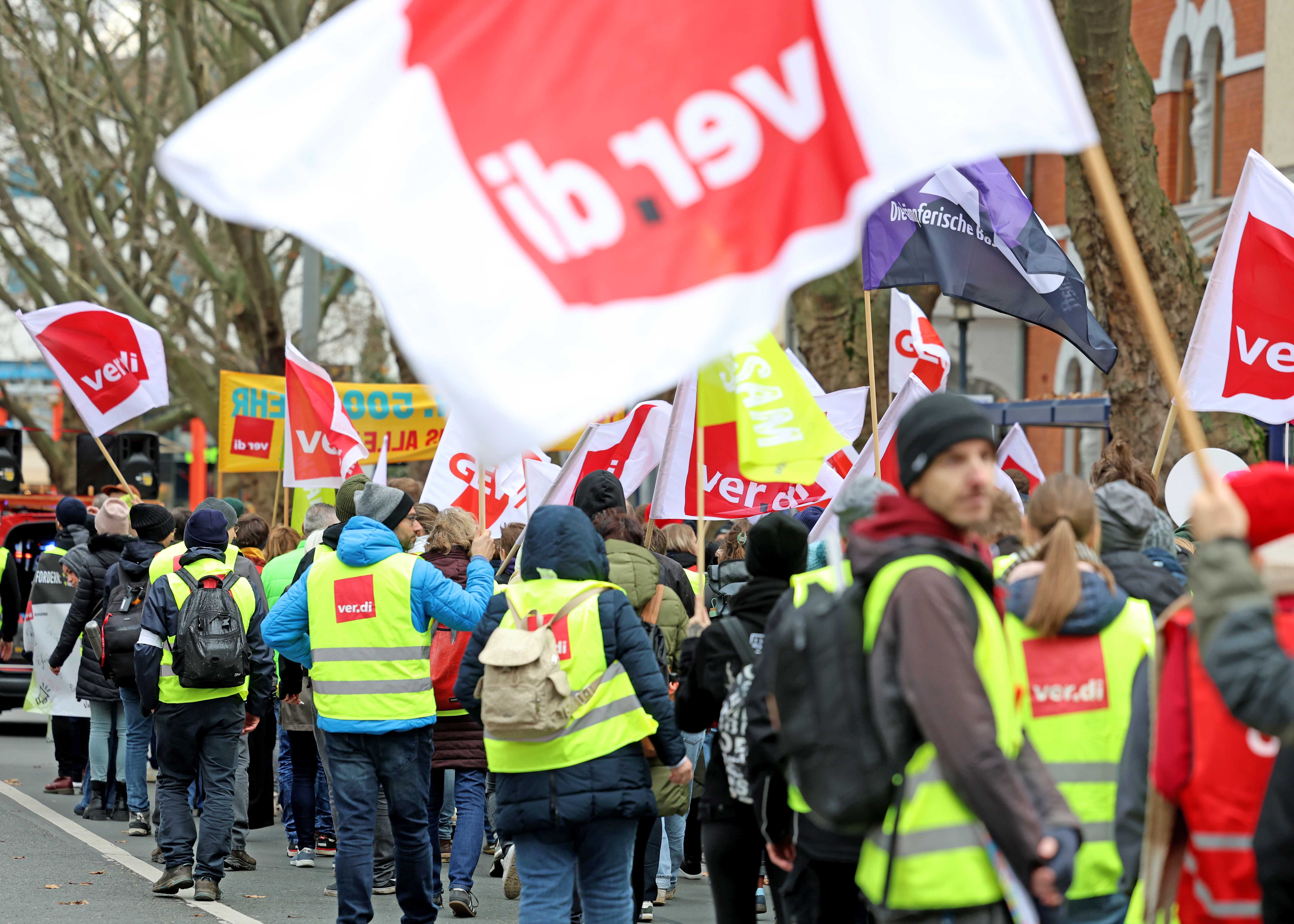Why The Jena Strike Matters: A Closer Look At Its Impact And Significance
The Jena strike has become one of the most talked-about labor movements in recent years. It's not just another protest; it's a symbol of workers' rights and fair treatment in the modern workplace. As industries evolve, so do the demands of employees, and this strike highlights the growing need for better working conditions and wages.
Imagine this: you're working hard every single day, putting in long hours, but your paycheck doesn't reflect your effort. That's exactly what happened in Jena, Germany, where workers decided they'd had enough. The strike wasn't just about money; it was about respect, fair treatment, and the right to live a decent life. And that's why it caught everyone's attention.
This movement isn't just limited to Jena. It's part of a global trend where workers are standing up for themselves. From tech giants to manufacturing plants, employees are demanding change, and the Jena strike is a perfect example of how collective action can create waves of transformation. So, let's dive deeper into what this strike is all about and why it matters to us.
- David Albrecht The Untold Story Of A Visionary Leader
- Hella Jongerius The Queen Of Contemporary Design Redefining Modern Aesthetics
Table of Contents
- Background of the Jena Strike
- Key Issues Behind the Strike
- Timeline of Events
- Economic Impact of the Strike
- Worker Perspectives
- Government Response
- Media Coverage and Public Opinion
- Long-Term Effects on Labor Relations
- Global Comparison of Labor Movements
- Future Outlook for Workers' Rights
Background of the Jena Strike
Let's rewind a bit and set the stage. Jena, a city in eastern Germany, is home to several major industries, including manufacturing and tech. The strike that unfolded there wasn't an overnight decision; it was the result of years of frustration among workers who felt undervalued and overworked. The main players in this drama? Employees at a prominent manufacturing plant who were tired of stagnant wages and poor working conditions.
But here's the kicker: this wasn't just about one group of workers. It was a wake-up call for the entire labor force in Germany. The strike gained momentum because it resonated with people across different sectors who were facing similar challenges. Think about it—how many of us have felt like our hard work goes unnoticed? The Jena strike gave a voice to those silent struggles.
Why Jena?
Why did this strike happen in Jena, specifically? Well, the city has a rich industrial history, and its workforce has always been at the forefront of innovation. However, with globalization and automation, many workers found themselves caught in a cycle of low wages and high expectations. The strike was their way of saying, "Enough is enough." And guess what? People listened.
- Personensuche Braunschweig Your Ultimate Guide To Finding People In Braunschweig
- Brand Werdau Heute The Rise Of A Modern Icon In Todays Market
Key Issues Behind the Strike
So, what exactly were the workers protesting? It boils down to a few key issues. First, there's the matter of wages. Many employees felt that their salaries hadn't kept up with the rising cost of living. Second, there were concerns about job security. With automation on the rise, workers feared that their positions might become obsolete. And finally, there was the issue of working conditions. Long hours, unsafe environments, and lack of benefits were just some of the grievances voiced during the strike.
Let's break it down:
- Wages: Not keeping up with inflation
- Job Security: Fear of automation replacing human labor
- Working Conditions: Unsafe environments and lack of benefits
How These Issues Affect Workers
These issues aren't just numbers on a spreadsheet; they have real-world consequences. Workers who can't afford basic necessities like housing and healthcare are more likely to experience stress and burnout. And when job security is uncertain, it's hard to plan for the future. The Jena strike brought these problems to the forefront, forcing companies and governments to take notice.
Timeline of Events
The Jena strike didn't happen in a vacuum. It was the result of a series of events that built up over time. Here's a quick timeline of what went down:
- 2018: Initial complaints from workers about wages and conditions
- 2019: Formal negotiations between unions and management
- 2020: Strike action begins as talks break down
- 2021: Public support grows as the strike gains media attention
- 2022: Resolution reached after months of protests
Each step in this timeline played a crucial role in shaping the outcome of the strike. And while it wasn't an easy journey, it ultimately led to positive changes for the workers involved.
The Role of Unions
Unions were instrumental in organizing and supporting the strike. They provided a platform for workers to voice their concerns and negotiate with management. Without their involvement, the strike might not have been as successful. It's a reminder of the importance of collective action in achieving common goals.
Economic Impact of the Strike
Now, let's talk about the economic side of things. Strikes can have a significant impact on both local and national economies. In Jena, the strike disrupted production at several key facilities, leading to delays and increased costs for companies. But here's the interesting part: it also forced businesses to rethink their labor practices and invest in their workforce.
According to a report by the German Economic Institute, the strike resulted in a temporary dip in productivity, but it also led to long-term benefits for the local economy. Companies that improved working conditions and wages saw increased employee satisfaction and productivity in the months following the strike. It's a win-win situation, if you ask me.
Global Economic Ripple Effects
But the impact wasn't limited to Jena. The strike sent shockwaves through the global economy, as companies reassessed their labor policies. It's a reminder that what happens in one corner of the world can have far-reaching consequences. And with globalization continuing to shape the labor market, the lessons learned from Jena are more relevant than ever.
Worker Perspectives
Of course, no discussion of the Jena strike would be complete without hearing from the workers themselves. What did they have to say about their experiences? Many expressed relief and gratitude for the support they received during the strike. Others talked about the challenges of standing up to powerful corporations. But one thing was clear: they were proud of what they had achieved.
Here's what one worker had to say: "We didn't do this for ourselves alone. We did it for everyone who's ever felt powerless in the workplace. This strike showed that when we come together, we can make a difference."
Voices from the Frontlines
Listening to the voices of those on the frontlines is crucial. It gives us insight into the human side of the strike and reminds us why these movements matter. Whether it's a single mother fighting for better pay or a young worker advocating for job security, each story adds to the bigger picture of labor rights.
Government Response
So, how did the government react to the Jena strike? Initially, there was some hesitation, as officials weighed the pros and cons of intervention. But as the strike gained momentum, the government realized that action was needed. They stepped in to facilitate negotiations and ensure a peaceful resolution.
In the end, the government played a key role in bridging the gap between workers and management. It's a testament to the power of collaboration and dialogue in resolving conflicts. And while there's still work to be done, the Jena strike set a positive precedent for future labor disputes.
Policy Changes
One of the lasting impacts of the strike was the push for policy changes. The government introduced new regulations aimed at protecting workers' rights and ensuring fair treatment in the workplace. These changes have had a ripple effect across Germany and beyond, inspiring similar movements in other countries.
Media Coverage and Public Opinion
The media played a crucial role in shaping public opinion about the Jena strike. From news outlets to social media platforms, the story was covered extensively, bringing attention to the issues at hand. And while some coverage was critical, most of it was supportive, highlighting the importance of workers' rights.
Social media, in particular, was a game-changer. Workers used platforms like Twitter and Facebook to share their stories and rally support. It was a modern twist on traditional activism, proving that technology can be a powerful tool for change.
The Power of Social Media
Think about it: a single tweet or post can reach millions of people in seconds. The Jena strike showed us the potential of social media to amplify voices that might otherwise go unheard. It's a reminder that in today's digital age, anyone can be a change-maker.
Long-Term Effects on Labor Relations
So, what does the future hold for labor relations in the wake of the Jena strike? Experts predict that we'll see more emphasis on collaboration and mutual respect between workers and employers. Companies are realizing that investing in their workforce isn't just the right thing to do; it's good for business.
And let's not forget the role of technology. As automation continues to evolve, there will be new challenges and opportunities for workers. The Jena strike serves as a blueprint for how to navigate these changes in a way that benefits everyone involved.
Lessons Learned
The strike taught us valuable lessons about the importance of standing up for our rights and working together to achieve common goals. It showed that even in the face of adversity, collective action can lead to positive change. And as we move forward, these lessons will continue to guide us in our pursuit of fair labor practices.
Global Comparison of Labor Movements
When we look at labor movements around the world, the Jena strike stands out as a shining example of what can be achieved through perseverance and unity. From the labor strikes in the United States to the protests in Asia, workers everywhere are fighting for their rights. And while each movement is unique, they all share a common goal: to create a fair and just workplace for all.
By comparing the Jena strike to other movements, we can gain a better understanding of the global labor landscape and the challenges workers face. It's a reminder that the fight for workers' rights is a universal one, and that we're all in this together.
What Sets Jena Apart
What makes the Jena strike particularly noteworthy is its focus on collaboration and dialogue. Unlike some movements that resort to violence or extreme measures, the workers in Jena chose a peaceful approach. And that's something we can all learn from.
Future Outlook for Workers' Rights
As we look to the future, the outlook for workers' rights seems promising. The Jena strike has set a new standard for labor movements, showing that change is possible when we work together. But there's still a long way to go. We need to continue pushing for fair wages, safe working conditions, and job security for all workers.
And here's the best part: the power is in our hands. Whether it's through strikes, protests, or simply speaking out, we have the ability to shape the future of labor relations. So, let's keep the momentum going and make sure that the lessons of Jena are remembered for generations to come.
Call to Action
So, what can you do to support workers' rights? Start by educating yourself about the issues and staying informed about labor movements in your area. Share stories and information on social media to raise awareness. And most importantly, stand in solidarity with workers who are fighting for a better future.
Together, we can create a world where every worker is treated with the respect and dignity they deserve. The Jena strike showed us that it's possible. Now, it's up to us to make it a reality.



Detail Author:
- Name : Imani Runolfsson
- Username : dawson09
- Email : orath@hansen.com
- Birthdate : 1981-05-10
- Address : 351 Hoeger Land Suite 389 Pollichport, RI 34070
- Phone : +1 (463) 395-6015
- Company : Hill Ltd
- Job : Financial Manager
- Bio : Adipisci vitae et explicabo iusto non. Corrupti quis voluptatem quas laudantium delectus. Aliquam voluptatibus omnis distinctio dolore hic eaque.
Socials
linkedin:
- url : https://linkedin.com/in/jaquan.kuhic
- username : jaquan.kuhic
- bio : Neque ut ratione neque esse.
- followers : 6178
- following : 2845
twitter:
- url : https://twitter.com/jaquan_xx
- username : jaquan_xx
- bio : Id qui assumenda aut tempora ut eum. Voluptatem itaque enim voluptas non mollitia ex quia. Provident recusandae esse cumque voluptate.
- followers : 6180
- following : 1963